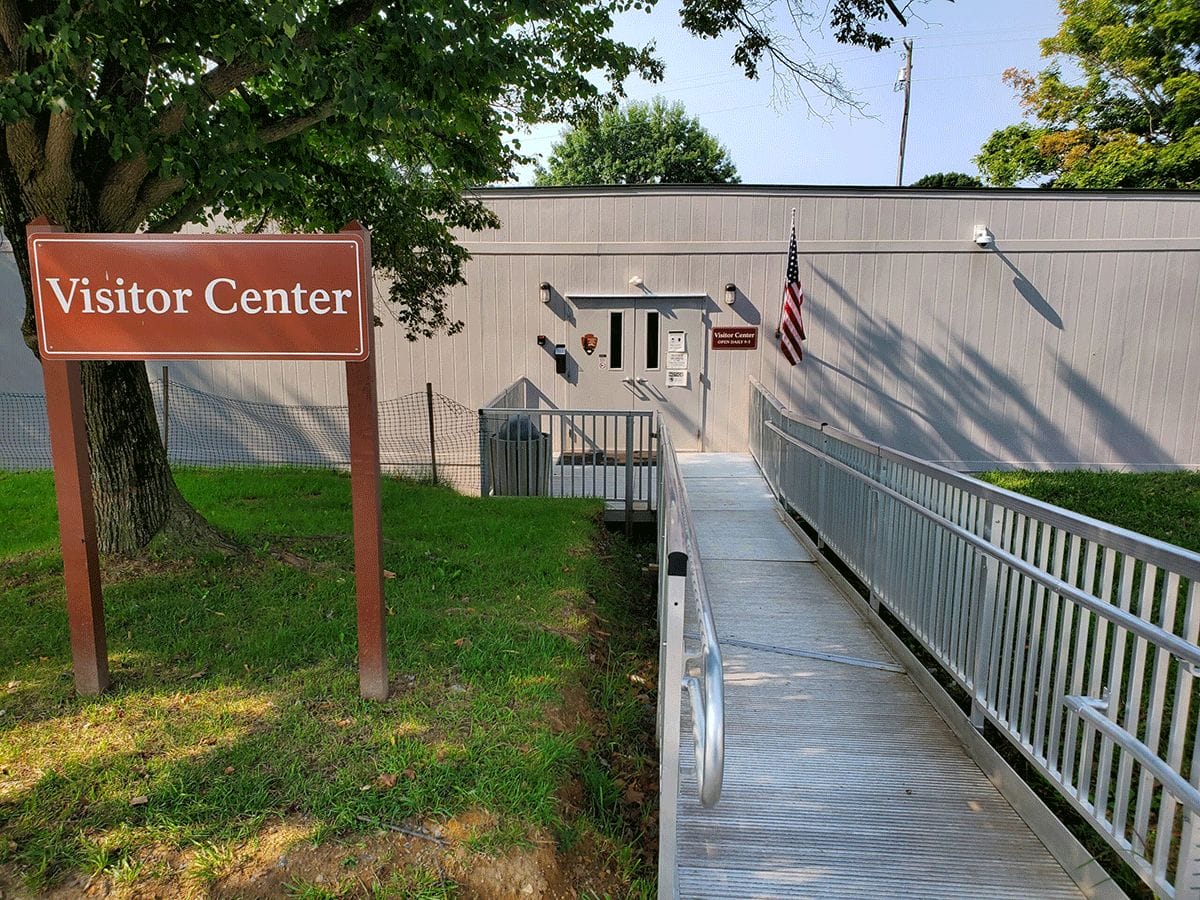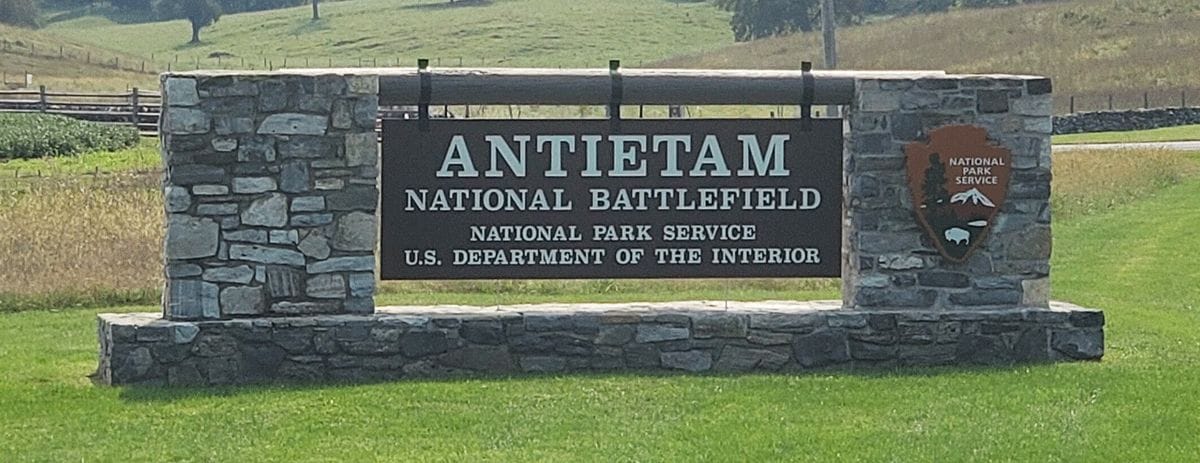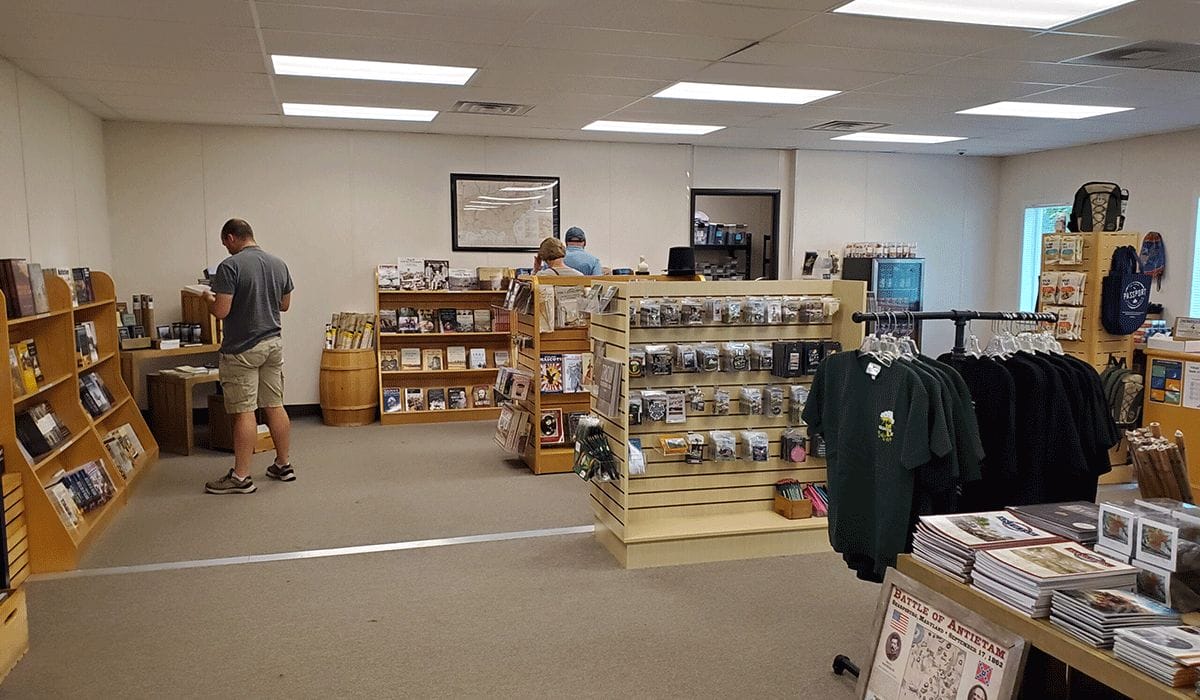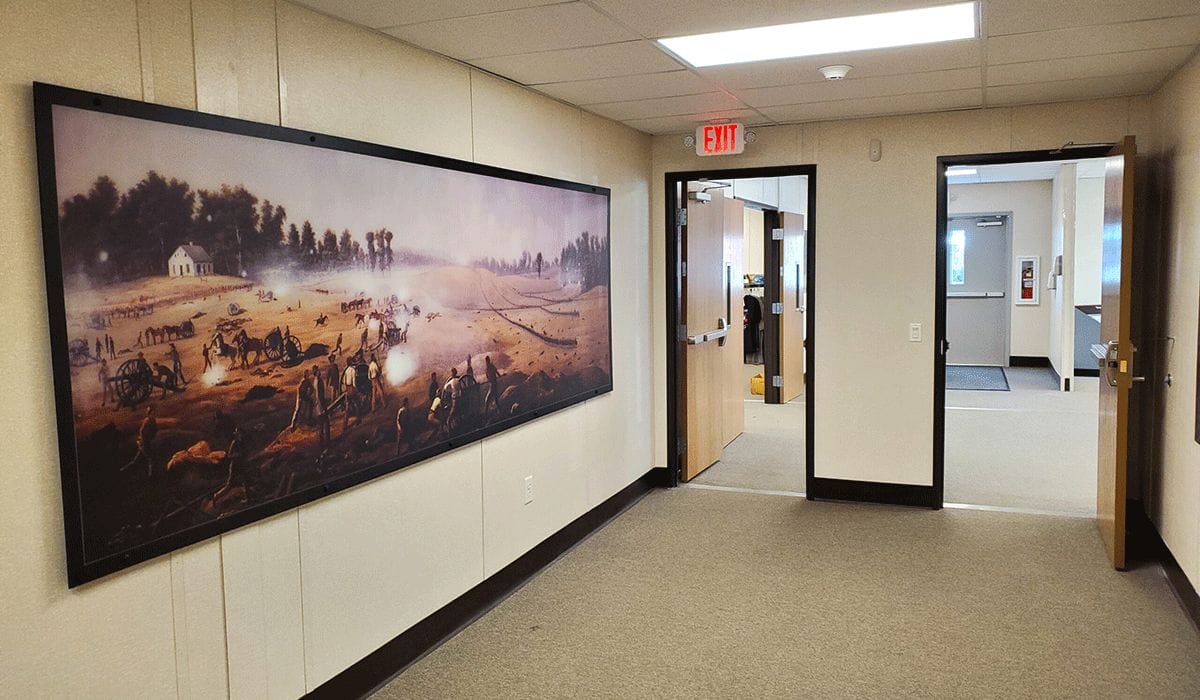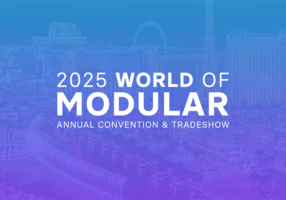Temporary Visitors Center at Antietam National Battlefield Park
Project Overview
In collaboration with a leading General Contractor, USMGE undertook the construction of a temporary modular visitors center at Antietam National Battlefield Park. This initiative was aimed at facilitating visitor engagement during the renovation phase of the existing Visitors Center. USMGE’s contribution involved the provision of a comprehensive 5,000 square foot modular building, built by Titan Modular Systems, tailored to accommodate diverse functionalities.
This phase-one project spanned over two years, featuring essential facilities such as retail space, film rooms, exhibit rooms, an information center, and restrooms. Upon the completion of the renovation phase, these modular buildings were strategically relocated to a permanent site in Frederick, MD, situated within another US Park Service facility.
This relocation served the purpose of promoting education and training, aligning with USMGE’s commitment to repurposing and extending the functionality of these structures beyond their initial deployment at Antietam National Battlefield Park. This innovative approach not only addressed immediate visitor needs during renovations but also contributed to broader educational initiatives in a different park setting.
Challenges and Goals
Antietam National Battlefield Park, a revered site listed on the U.S. National Register of Historic Places, presented unique challenges demanding meticulous preservation efforts. The paramount goal was to ensure minimal disruption to the sacred grounds surrounding the new modular building. Given this imperative, modular construction emerged as an ideal solution, as the bulk of the construction occurred off-site, significantly reducing disturbance to the historical site. However, the project encountered further complexities during the relocation phase, necessitating additional care and attention.
The tear-down, transportation, and site restoration process at the initial location demanded meticulous handling to preserve the integrity of the hallowed ground. Moreover, the relocation to a new site mandated similar meticulous care requirements to uphold the historical significance and environmental considerations,
Sustainability Approach
Throughout the conception and execution of the modular visitors center project at Antietam National Battlefield Park, sustainability remained a pivotal consideration. USMGE’s commitment to sustainability extended beyond the immediate construction phase. The utilization of modular construction inherently minimized environmental impact by optimizing resources and reducing on-site disturbance, aligning with eco-friendly practices. Furthermore, the strategic relocation of these modular buildings to a new site in Frederick, MD, exemplified a sustainable approach.
This repurposing initiative showcased a dedication to extending the lifecycle of structures, reducing waste, and fostering educational opportunities within a different park setting. The careful planning involved in the tear-down, transportation, and restoration processes not only preserved historical integrity but also underscored a commitment to environmental stewardship. By seamlessly integrating sustainability into both construction and relocation phases, the project showcased USMGE’s holistic approach to preserving heritage sites while promoting long-term environmental responsibility and educational outreach.
More from Modular Advantage
AI, Faster Sets, and Automation: The Future of Modular is at World of Modular
While the modular building industry has long known that it can be an effective solution to increase affordable housing, the word is slowly spreading to more mainstream audiences. Three presentations at this year’s World of Modular in Las Vegas hope to provide insight and direction for those seeking a real solution to the crisis.
An Insider’s Guide to the 2025 World of Modular
The Modular Building Institute is bringing its global World of Modular (WOM) event back to Las Vegas, and with it comes some of the industry’s best opportunities for networking, business development, and education. Over the course of the conference’s four days, there will be numerous opportunities for attendees to connect, learn, and leverage event resources to get the most out of the conference.
Affordable Housing Now: The Industry’s Best Bring New Solutions to World of Modular
While the modular building industry has long known that it can be an effective solution to increase affordable housing, the word is slowly spreading to more mainstream audiences. Three presentations at this year’s World of Modular in Las Vegas hope to provide insight and direction for those seeking a real solution to the crisis.
Opportunities for Innovation in Modular Offsite Construction
Modular Offsite Construction has already shattered the myth that it only produces uninspired, box-like designs. Architectural innovations in module geometry, configurations, materials, and products make it possible to create visually stunning buildings without sacrificing functionality or efficiency.
Safe Modular Construction with Aerofilm Air Caster Transport
In collaboration with Aerofilm Systems, Heijmans developed innovative skids using air caster technology for moving modules easily and safely. These pallets are equipped with an auto-flow system, making operation extremely simple.
Miles, Modules, and Memes: Building a Modular Network One Flight at a Time
At the end of the day, social media is just another tool for building connections, and like any other tool, needs to be used skillfully to work properly. Use social media thoughtfully, and it will open doors to real opportunities and relationships you didn’t even see coming.
Falcon Structures: Thinking Inside the Box
Some of Falcon’s latest projects include creating container solutions for New York’s Central Park and an East Coast professional baseball team. More and more, Falcon is shipping out container bathrooms and locker rooms to improve traditionally difficult work environments, like those in oil and gas or construction.
UrbanBloc—From Passion to Industry Leader
UrbanBloc specializes in three main categories or markets – what they call “Phase 0” projects, amenities, and urban infill. Clients are often attracted to shipping containers because from a real estate perspective they are considered an asset. Having the flexibility to move and transport these assets allows owners to respond to different circumstances in a fluid manner that they can’t get with standard construction.
The Hospitality Game-Changer
“Hospitality is about more than just providing a service – it’s about delivering an experience,” says Anthony Halsch, CEO of ROXBOX. “And that’s where containers thrive. They allow us to create spaces that are unique, efficient, and sustainable.”
Container Conversions Counts on Simplicity to Provide Critical Solutions
Container Conversions has fabricated and developed thousands of containers for varied projects, including rental refrigeration options, offices, kitchens, temporary workplace housing, and mobile health clinics.


